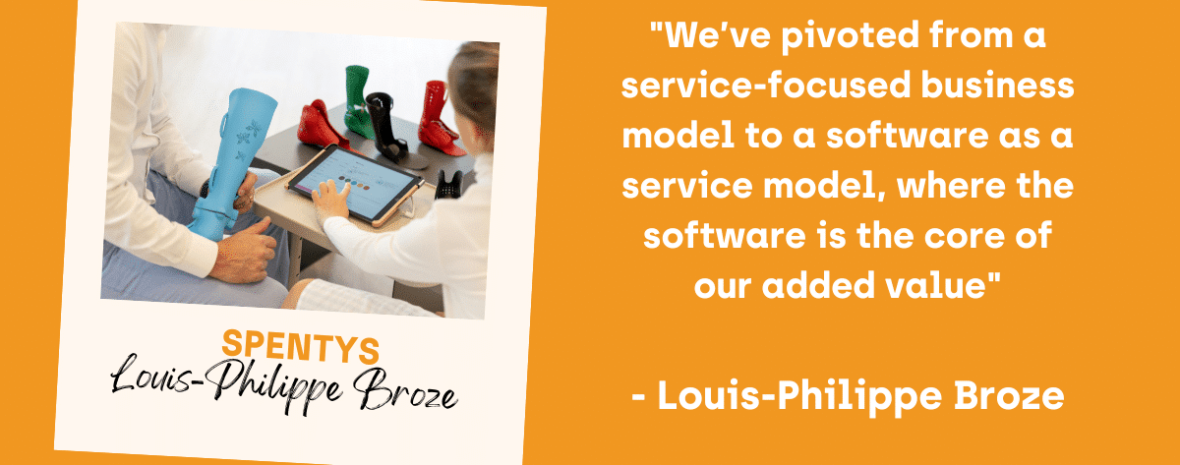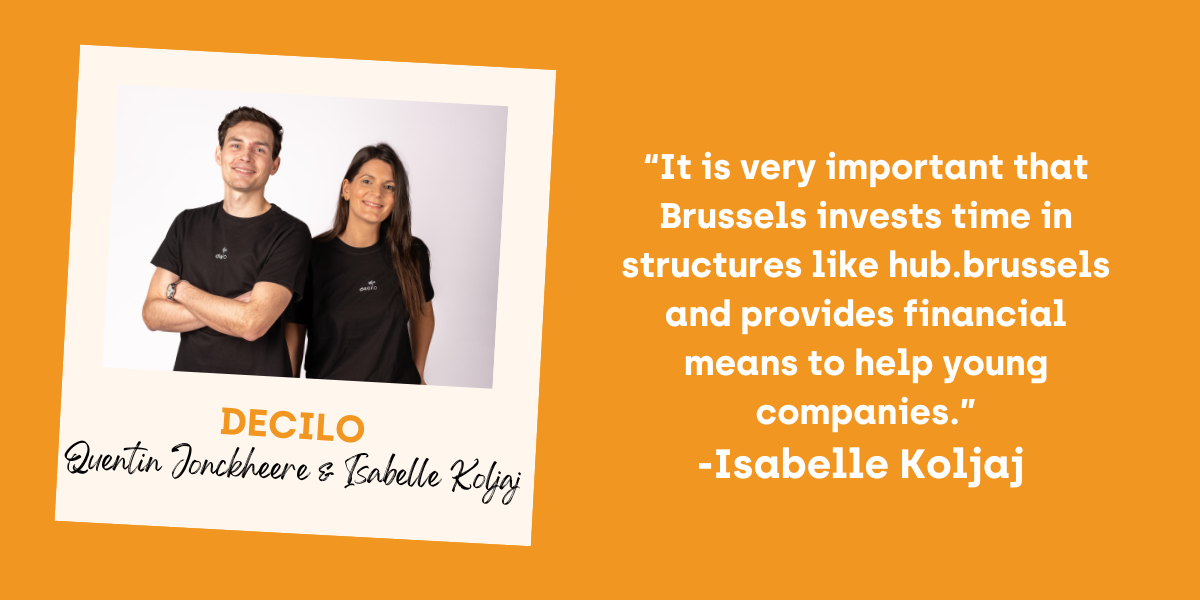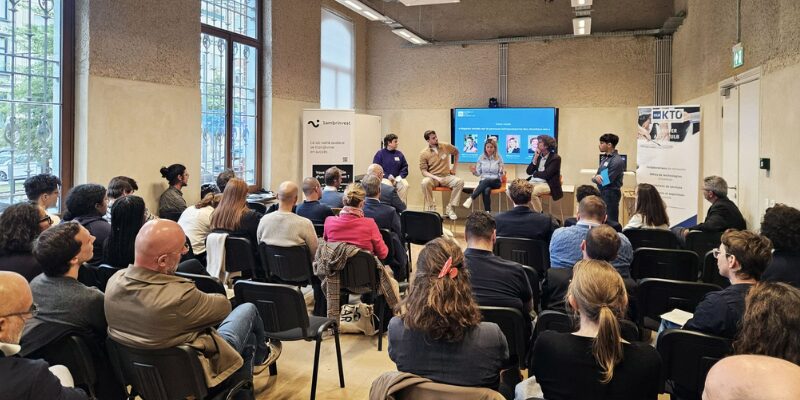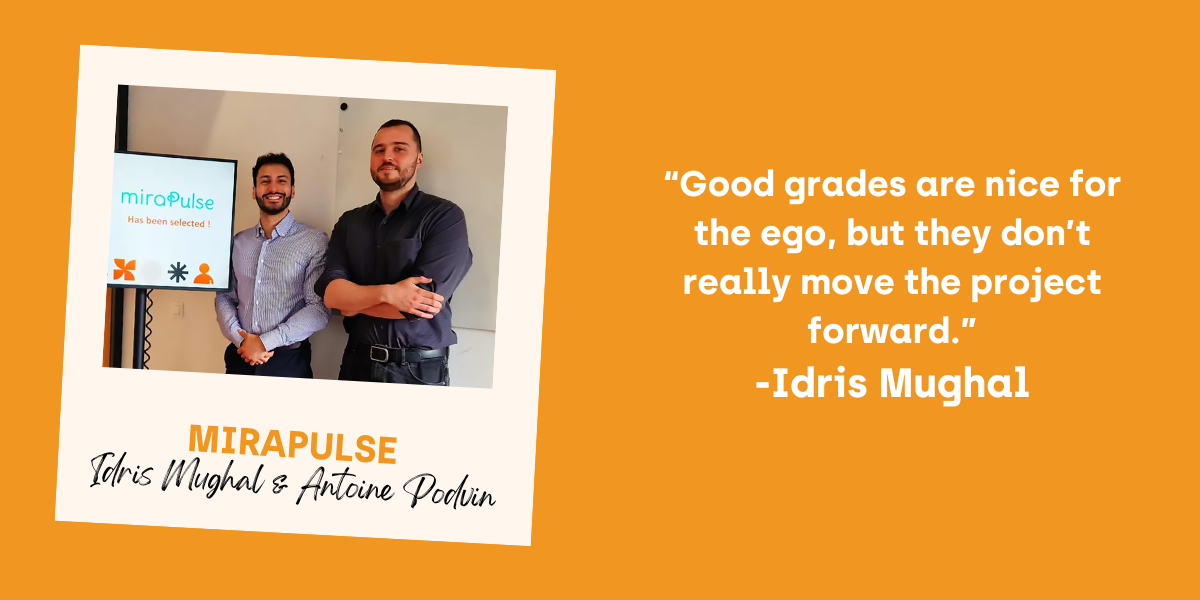Designing and manufacturing custom-made orthoses perfectly suited to the individual using 3D technology – this was the idea conceived by two young Brussels entrepreneurs Florian de Boeck and Louis-Philippe Broze. They founded Spentys in 2017, even before they had completed their studies. Seven years later, the company is thriving, with their expertise now extending to prosthetics. It is clear that their concept has proven its worth.
What do two childhood friends determined to launch a business together do? They look for a sector with a strong social impact and significant potential. They decided on healthcare. Never mind that they had no prior experience of the medical world or had not yet finished their degrees, one in civil engineering and the other in business. “We chose this field where innovations really truly matter because they focus on the individual,” explains Louis-Philippe Broze.
3D printing for orthopaedics
The two budding entrepreneurs turned their attention to designing and manufacturing orthoses, the devices used to immobilise limbs, using 3D printing. A choice made for the relative simplicity of the product “but also,” as Louis-Philippe Broze points out, “because orthoses had evolved little over time and were still too often limited to uncomfortable plaster casts. Yet, new technologies can provide greater comfort to those who need them.“
While globally they were not alone in working on a new generation of orthoses, they were the first to do so in Belgium and certainly in Brussels. Their aim was not to replace medical or paramedical professionals, but to act as technology providers. “Our initial goal was to offer orthopaedic technicians software that, based on a medical prescription, a scan of the injured limb and their own expertise, would generate a finished model ready for us to print and send.“
lifetech.brussels: a constant partner
In the summer of 2016, with funding from the Brussels Region for consultancy services, the two student entrepreneurs began testing their idea. They approached orthopaedic surgeons and gained the support of leading experts at both the Saint Luc and Chirec university hospitals. They also worked to persuade the more reticent orthopaedic technicians.
They prototyped, launched and validated clinical trials, purchased their first printer, demonstrated market demand and decided to take the plunge. In autumn 2017, they created Spentys and made a grand entrance into the Brussels healthtech ecosystem with the valuable assistance of the teams at lifetech.brussels. “We owe a great deal to lifetech.brussels,” says Louis-Philippe Broze. “They gave us invaluable advice, helped us to structure our business and introduced us to the Brussels healthtech ecosystem. Sophie and Christophe, who have been with us from the start and seen us develop, have practically become friends! Recently, lifetech.brussels once again helped us to secure a consultancy budget for HR issues.“
Seven years of growth
A lot has changed at Spentys since then. Three rounds of fundraising have not only ensured the company’s survival but fuelled its growth. The latest round, in November 2023, raised 2.8 million euros and is expected to drive the company to profitability by the end of 2025. Today, the team has grown to around twenty employees.
Spentys’ capabilities have now extended beyond upper limbs to include designing prosthetics for amputees. The offer has also evolved to provide orthopaedic technicians with a software package that enables them to complete the entire process, right up to the 3D printing. “We have therefore pivoted from a service-orientated business model to a software as a service model, where the software is the core of our added value,” says Louis-Philippe Broze. “This repositioning has improved our scalability because software is much easier to export.“
Exporting, particularly to the USA, is a key focus for the young CEO. He is justifiably proud of the partnership with the renowned Mayo Clinic and is eager to share his experience with other members of the Brussels lifetech ecosystem. “There are inspiring aspects in the foreign ecosystems, particularly in the USA, that we could bring to Brussels,” he notes. “Now our relationship with lifetech.brussels is less about receiving support and more about giving our time and our experience. I am committed to helping other entrepreneurs, which is why I am a member of the Lifetech Advisory Board.“
Brussels, a centre of excellence
Louis-Philippe Broze dreams of Brussels becoming a recognised centre of excellence in the healthtech world. “I hope Brussels remains as outward-looking as it has always been,” he says, “and that it soon ranks in the Top 3 of the best places to start a healthtech company. We are not there yet, but I believe that Brussels has everything it needs. Our city is still a close-knit community. It occupies a central position in Europe and boasts a wealth of talent, universities, research centres and hospitals. These are all assets that can attract more investment. it is a fertile ground, but the various regional, federal, private and public sectors will need to work together more closely so that everyone is aligned around a common strategy.“
Website




